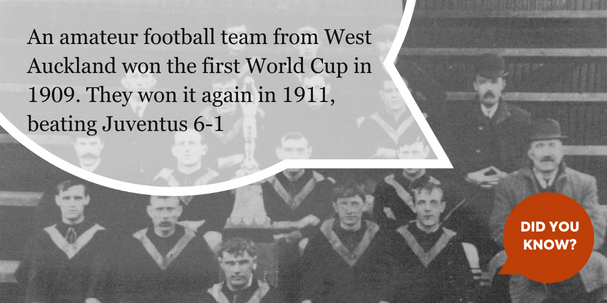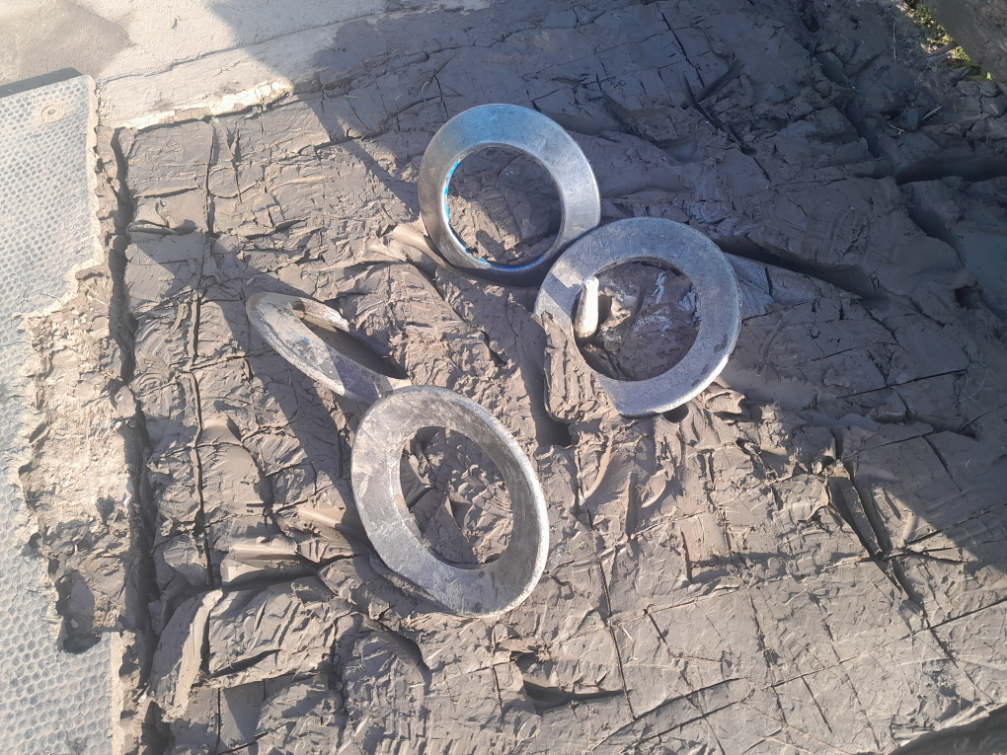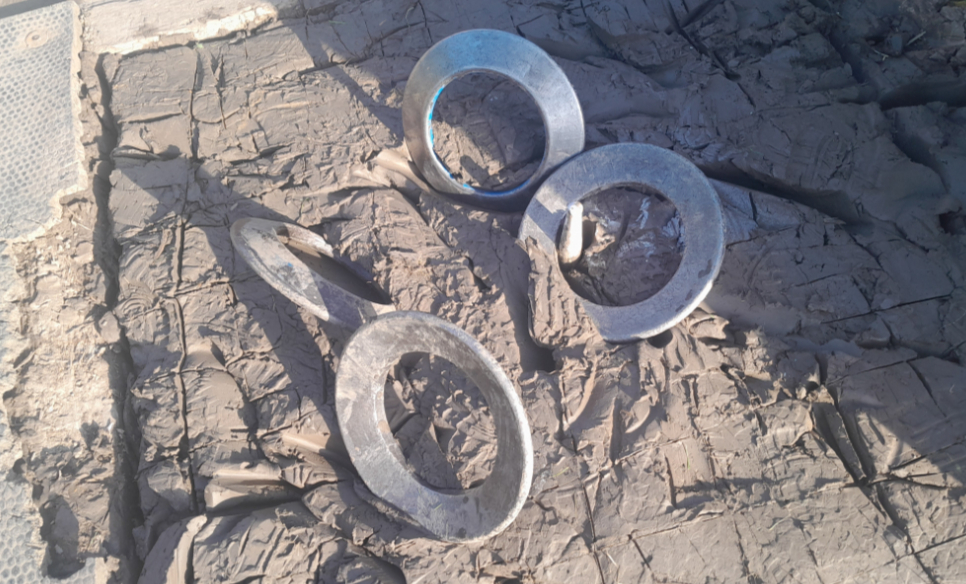
“I was on a walk and was passing a pub when I heard that unmistakable chink of metal and the slap of clay.
“I thought, ‘No. It can’t be. It doesn’t exist in this part of the world’.
“But, lo and behold, it was — and it does exist up here.”
So recounts the author Harry Pearson. What he had discovered was that the ancient sport of quoits most certainly is played in Northumberland.
“I grew up in Great Ayton, and if you went into Eskdale in North Yorkshire, it was everywhere,” he said. “But when I moved up here, I had no idea they played quoits here, too.”
- Read more: Charity boss sees red over Blue Badge parking
- Read more: Tern up for the books after bird flu devastation
Indeed they do. And while Harry includes the game in his excellent book No Pie, No Priest, in which he recounts his travels around the UK seeking out obscure country sports, quoits is becoming less obscure year on year. In fact, in one corner of our region, it is positively booming — although nobody is exactly sure why.
For those not in the know, quoits involves players throwing a five-and-a-quarter pound (2.4kg) metal ring — a quoit — over a distance of 33ft towards a metal pin which sits three inches above the ground in the middle of a square bed of clay.
Each player has two quoits, and two points are scored if the quoit goes over the pin, one if it’s simply the closest to the pin. The winner is the first to 15 points (21 in tournaments and in doubles matches).
The game is thought to have been introduced by the Romans. The steel hoops are not routinely manufactured these days, and commissioning a new pair can cost hundreds of pounds. Old pairs of quoits — often 60 years old or older — commonly change hands for upwards of £50.
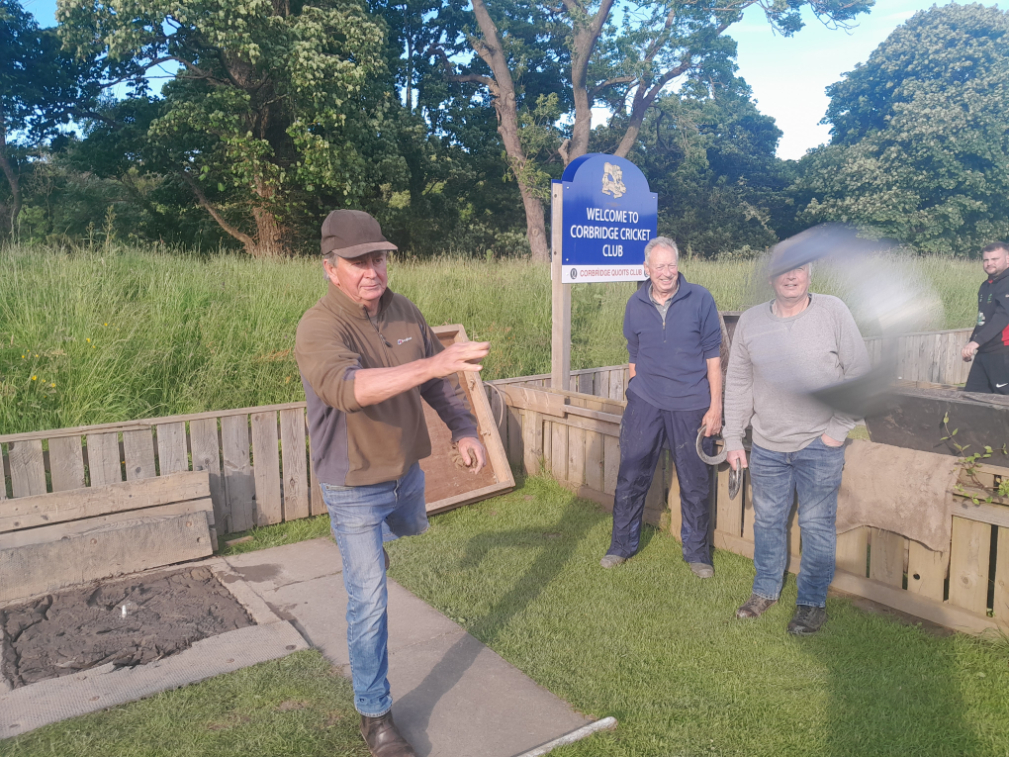
The main league in Northumberland is the Allen Valley Quoits League. The league secretary is Richard Macdonald, who plays for the Wallace Arms at Rowfoot, near Haltwhistle — which just happens to be the pub Harry was walking past when he made his discovery.
“There are seven leagues in the North of England, from Northumberland down to North Yorkshire,” said Richard.
“Our league is in the west of Northumberland. When we started in 1987, we had five teams. Now we’ve got 27 teams in three divisions of nine.
“We got another two new teams this year. No idea why, but it’s going from strength to strength.”
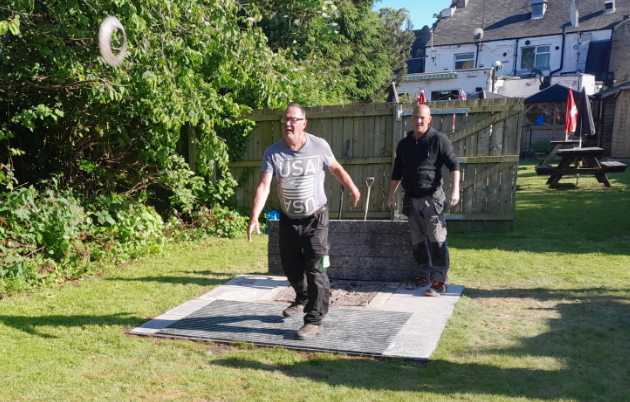
One of the new teams is based at the Blue Bell in Corbridge. One player there, Steve Clark, said: “Somebody mentioned quoits in the bar one night and it just grew from there.
“Andrew, the landlord, has been very supportive. One of the really difficult things is to get hold of quoits these days, and he’s been all over the place buying them for us. He’s even been as far as Huddersfield.”
Another player, Stephen Pickering, said: “We’re all loving it and we’ve got plenty of people to pick from for a team of six. It’s addictive. We could even get a second team. It’s all people in the bar are talking about.”
Ken Ridley, 65, a livestock farmer in Blanchland, is among the leading players in the league, turning out for the Rose and Crown in Slaley. His father Albert has just retired from the game.
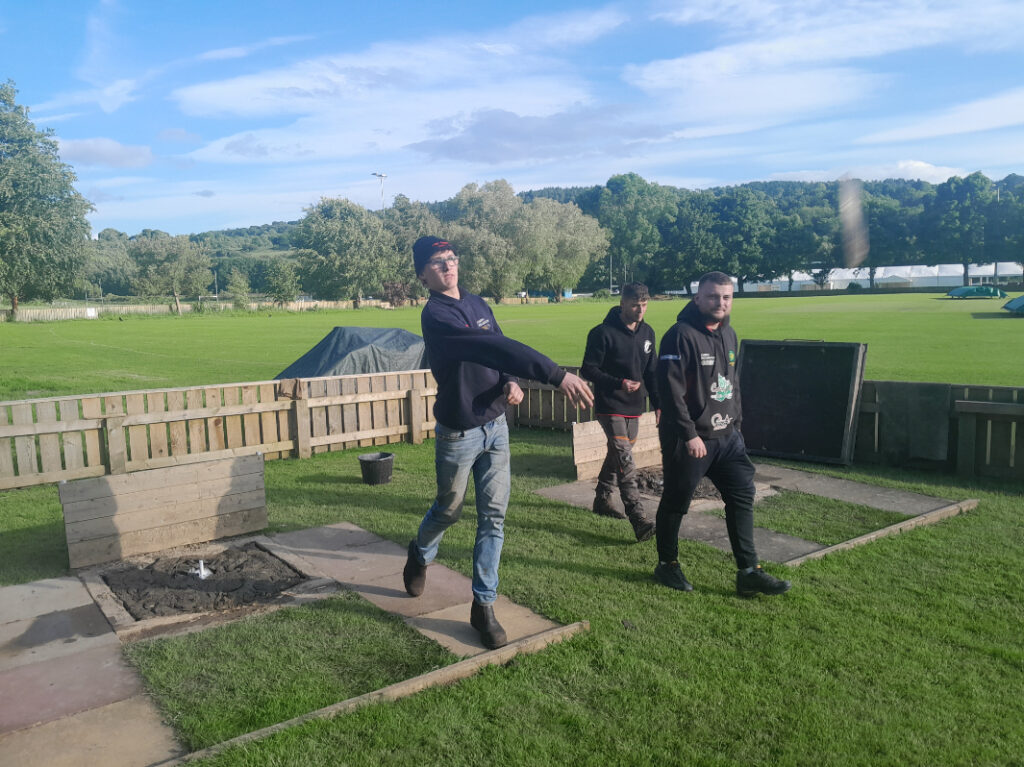
“He’s 88 now, and he was in at the start when they had only five teams. It was always considered an old man’s sport, but there are more and more younger ones now.
“When I go to places like Barnard Castle and Weardale, they’re struggling, but here, it’s really thriving. I can’t explain it.”
Ken’s sons Adam, 32, and Craig, 31, also play. In the world of quoits, three generations of players is not that unusual.
Lewie Barber was another top player and there is an annual charity competition played in his memory. His sons Paul and Kevin play in the Allen Valley League, as do Kevin’s sons Craig and Joe. Paul says he first had a quoit in his hand when he was seven. He’s now 61.
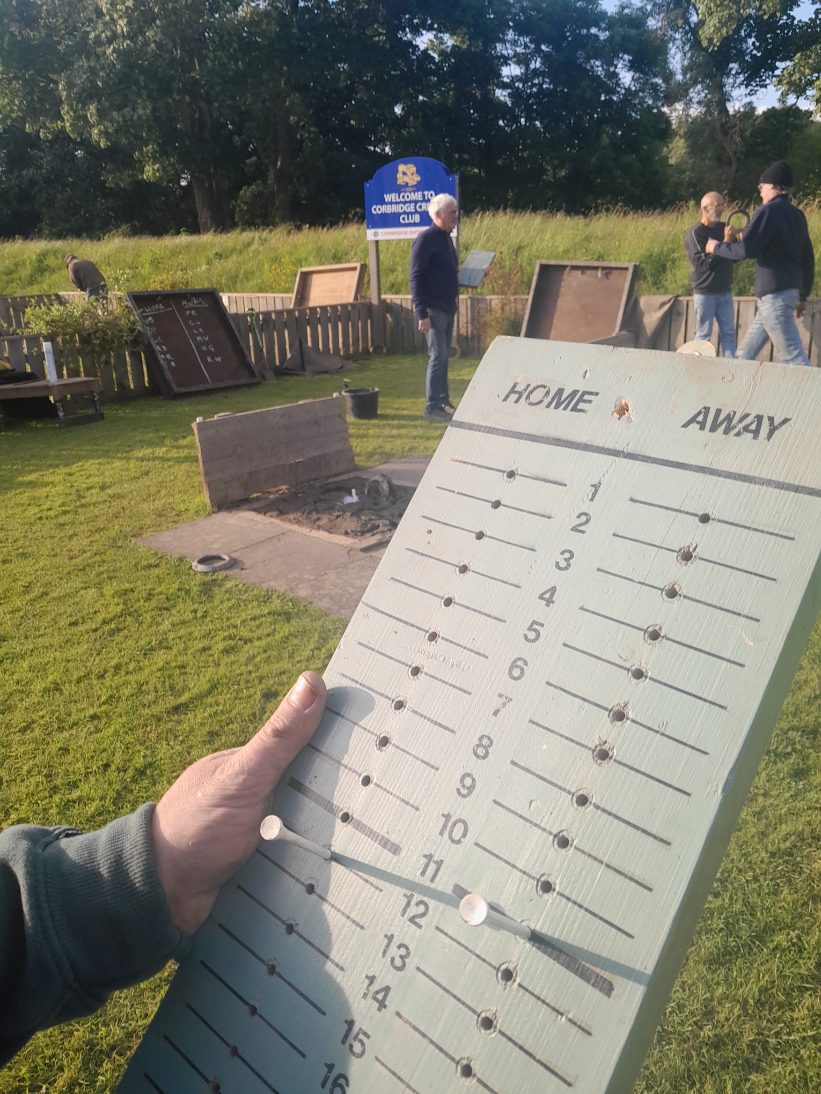
You no doubt have spotted that the game is linked to the pub.
“I think beer and the resurgence of quoits is not unrelated,” laughs Harry. “And I can only think the fact it’s also a very social sport can go some way to explain what’s going on. It’s also played in the evening, so people can play it after work.
“Oddly enough, there’s another ancient game called bat and trap, which is confined to a small area of Kent, and that’s having a similar resurgence.
“What’s happening, I think, is a bit like the start of the Campaign for Real Ale. This is the Campaign for Real Sports.”
